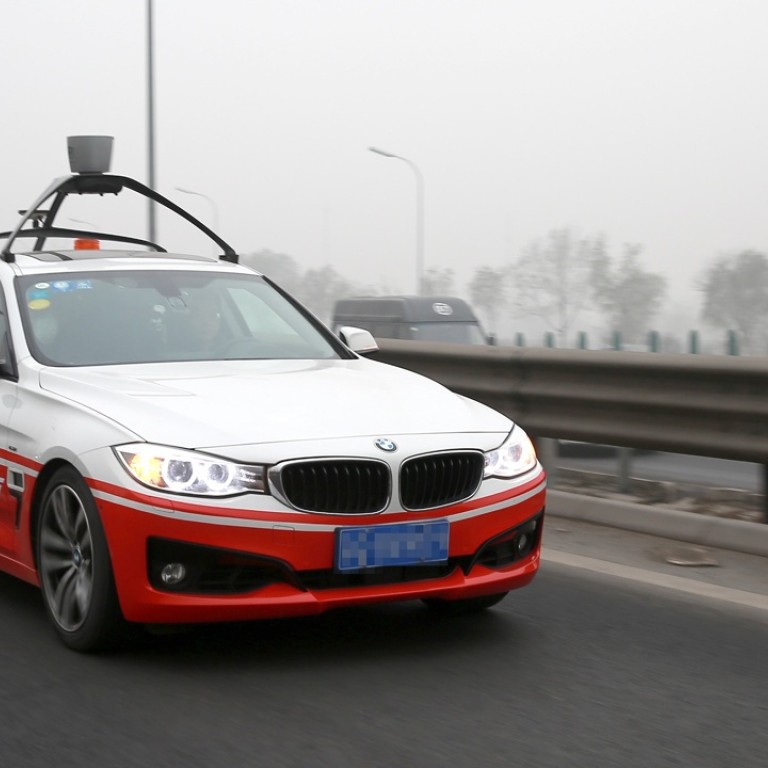
Baidu's driverless BMW 3, set for 2018 release, cruises 30km in Beijing
Chinese online search giant Baidu has successfully tested its autonomous driving technology over a 30-kilometre route around Beijing, the company said this week.
Baidu test drove a modified BMW 3 Series at speeds of up to 100km/h on different kinds of roads and under varying environmental conditions, it said.
It hailed this as a new first for a Chinese company developing autonomous car technology.
“Fully autonomous driving on mixed road conditions is universally challenging, with complexity further heightened by Beijing’s road conditions and unpredictable driver behaviour,” said Wang Jing, senior vice president of Baidu.
Wang is also the general manager of Baidu’s newly set up autonomous driving business unit.
The company announced plans to develop a driverless car last year, following in the footsteps of Google, which has been testing autonomous cars for a number of years.
In June, Google said its fleet of self-driving cars had completed 1 million miles on the road and successfully navigated over 600,000 sets of traffic lights.
READ MORE: Google’s driverless cars in 11 ‘minor’ accidents on Californian roads
Baidu’s autonomous driving project has been led by the company’s Institute of Deep Learning since 2013, which has developed a series of autonomous driving technologies under Baidu AutoBrain.
Baidu has invested heavily in deep-learning, a branch of machine learning and artificial intelligence that not only powers its autonomous vehicle project but also its search, advertising, and speech- and image -recognition technologies.
Baidu AutoBrain technology includes smart decision-making, detection and highly automated driving maps that record 3D road data to within a few centimetres of accuracy.
WATCH: Driverless cars ‘the future’ of China housing estate
Starting from Baidu’s headquarters in Beijing’s Zhongguancun district, the red-and-white car tackled the capital’s fifth ring road before taking in Olympic Park and looping back towards the corporate HQ.
During the journey, it was able to change lanes, make U-turns, pass other cars and merge into traffic, the company said.
In an interview with the Wall Street Journal, Baidu said it plans to introduce autonomous vehicles as shuttle buses in urban areas within the next three years.

